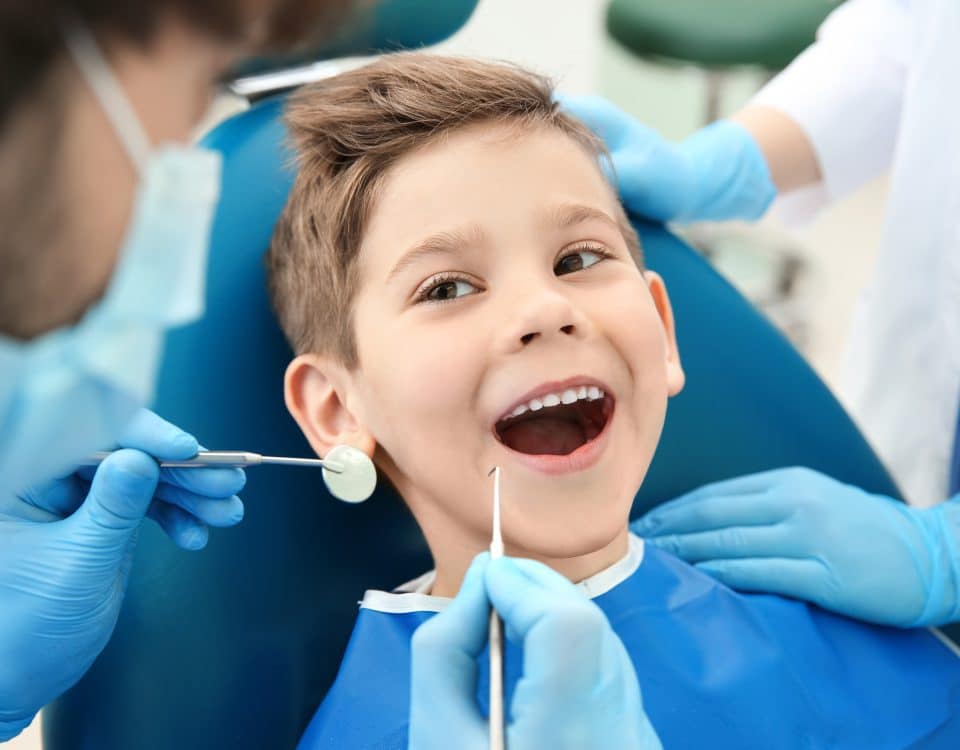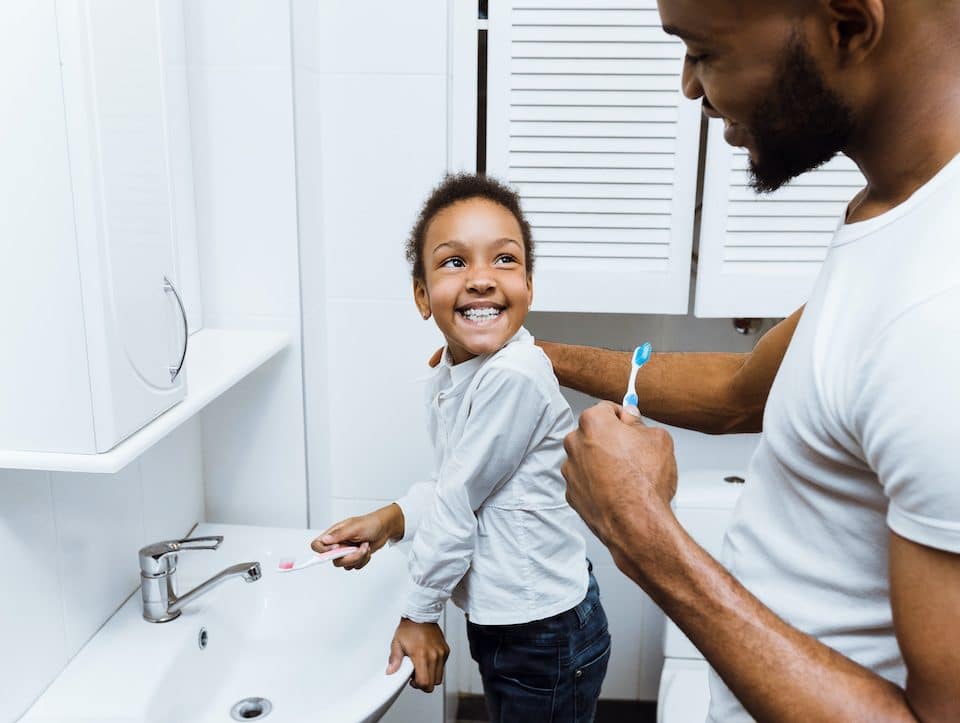What is Baby Bottle Tooth Decay?

What Should My Mouthwash Be Doing?
July 22, 2020
TMJ Disorder: Signs, Causes, and Remedies
August 6, 2020You might think baby teeth aren’t too important since they’ll be replaced one day by permanent teeth. However, keeping baby teeth healthy is essential to their oral health for years to come. One common dental problem in small children is baby bottle tooth decay. Do you know how to combat it?
Baby Bottle Tooth Decay
Babies are susceptible to tooth decay too, just like adults. Baby bottle tooth decay, also known as early childhood caries, is one of the most common diseases in children in the United States. Colgate explains that the development of tooth decay involves an interaction between cavity causing and non-cavity causing bacteria, along with fermentable carbohydrates and components in saliva. Together, they collectively work to destroy tooth enamel surfaces. Tooth decay can happen as soon as the teeth erupt. In infants, this most commonly happens when harmful bacteria is passed down from the caregiver to the baby through saliva. For example, when mom’s mouth comes into contact with the spoon and then is given to the baby. Baby bottle tooth decay can also happen due to poor feeding habits, like when a baby is put to bed with a bottle or given excessive amounts of juice and other sugary drinks.
Risk factors for baby bottle tooth decay can include:
- Early exposure of bacteria in baby teeth
- Bottle feeding at night
- Having too much sugar
- Poor oral hygiene
- Breakdown of the enamel
- Lack of fluoride exposure
… But They’re Just Baby Teeth
Even though they’re just baby teeth, they are still critical in the proper development of the mouth, eating, and talking. Baby teeth allow toddlers to be able to eat hard foods and talk. Additionally, baby teeth are space holders for permanent teeth. If the baby experiences decay, they could lose those teeth. This could mean the adult teeth not erupting properly, affecting the development of their mouth and increasing their need for orthodontic work when they get older.
Taking Care of Baby Teeth
Did you know that your baby is born with 20 teeth below the gums? They usually begin appearing at 6 months, but it can take up to a year to see them erupt. The American Dental Association explains what you need to know about taking care of your baby’s teeth:
- Teething can be painful. As they begin to get their teeth, babies can become fussy and irritable.
- As soon as you see a tooth, begin using a fluoride toothpaste to brush their teeth with — this helps prevent decay.
- Only use a smear of toothpaste (about the size of a grain of rice) and begin brushing their teeth with a small toothbrush.
- Schedule your baby’s first dental visit when you see their first tooth or by the time they turn one, whichever comes first. Remember, as soon as a tooth appears, babies can get cavities.
- If two teeth touch, you’ll need to start flossing. If the teeth aren’t touching yet, then you can usually brush around each tooth to really get them clean. However, once all the teeth begin to come in side-by-side, begin flossing their teeth.
- Do not put your baby to bed with a bottle. You can prevent baby bottle tooth decay by not sending your baby to bed with a bottle. It most often occurs in the upper front teeth, but prolonged exposure of the baby’s teeth to sugar can cause decay on any toot.
- Don’t share utensils or “clean” their pacifier with your mouth. Cavity-causing bacteria can be transferred through saliva, so you could be the one introducing those germs to your child. Keep your utensils and germs separate to keep their mouth healthy.
- Have them drink tap water. Water with fluoride has been proven to reduce cavities up to 25% and protects the teeth.
- Ask about sealants. Brushing and flossing do a lot to protect against cavities, but sealants are an extra barrier between cavity-causing bacteria and the teeth. School-age children without sealants have almost 3x more cavities than children that have them.
Make an Appointment with Dr. Varley and Stonebrook Family Dental
Positive dental experiences during childhood are the foundation of a lifetime of good oral health habits and bright, healthy smiles. Our friendly and gentle team understands that many children feel anxious about dental visits, and we always take the time to help our younger patients feel at ease in our care. Our mission is to make your child’s dental visits easy, educational, and fun! We have cartoons in our treatment rooms, prizes, and can even offer laughing gas for anxious children. Call today to learn more: (303)-872-7907.


